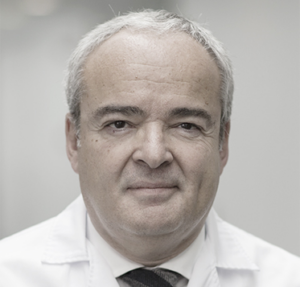Adrenal cancer
Disease description
Adrenal cancer is a rare oncological disease that affects the endocrine glands located above the kidneys. Women aged 45-55 and children under 5 years old are at higher risk.
Symptoms indicating the need for diagnosis and treatment
Up to 60% of adrenal tumors are hormonally active. The primary symptoms are associated with hormone overproduction, alongside nonspecific manifestations common to urogenital cancers:
- Increased cortisol production leads to sleep disturbances, skin thinning, and fat redistribution (thin legs with a rounded abdomen).
- Increased production of female sex hormones results in a rise in the tone of voice, testicular atrophy, hair loss in male-pattern areas, and fat accumulation on the thighs.
- Increased androgen (male hormone) production leads to voice deepening, oily skin, acne, and baldness.
Diagnosis and treatment methods
Diagnosis
Laboratory tests play a crucial role in diagnosing adrenal cancer. Key indicators include: ACTH (Adrenocorticotropic hormone), 17-OHP (17-hydroxyprogesterone) and cortisol. In addition to lab tests, patients undergo imaging studies to assess regional lymph nodes and detect metastases: ultrasound (US), computed tomography (CT), magnetic resonance imaging (MRI).
Treatment
The application of the latest global guidelines for adrenal cancer treatment allows for a multidisciplinary approach tailored to each case.
The primary treatment method is minimally invasive adrenalectomy, performed via a posterior or abdominal approach. The Da Vinci robotic system may be used for removing smaller adrenal tumors.
For conservative treatment leading global clinics may employ hormonal therapy and external beam radiation therapy performed with the help of modern equipment.
Innovations in global clinics
Recently, clinics have started using bone marrow transplantation combined with high-dose chemotherapy for treating adrenal tumors. Bone marrow stem cells contribute to blood formation and enhance the effectiveness of cancer treatment.

